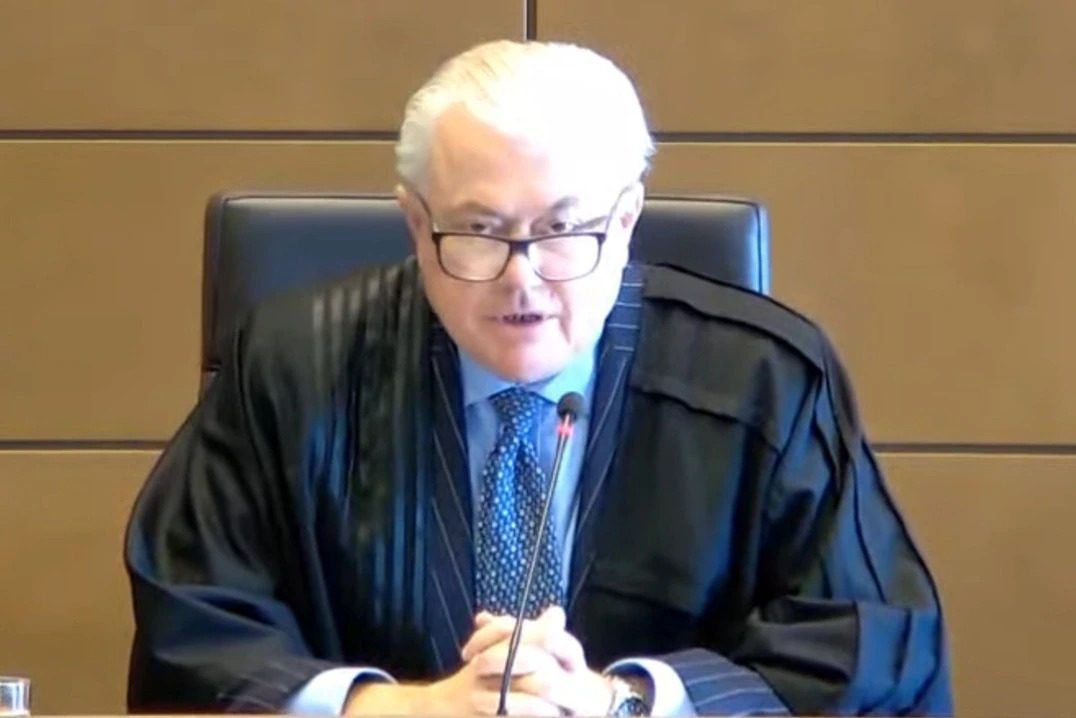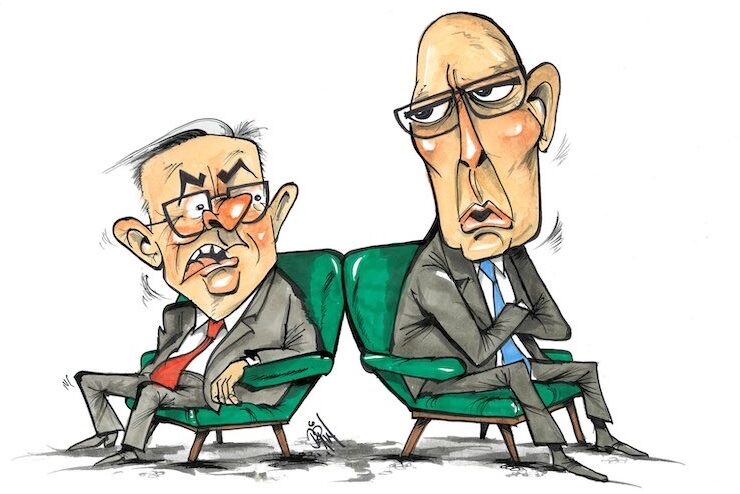
The judicial task of judgment writing is solitary work, to put aside any biases, to avoid over-simplification and exaggeration, to eschew the use of adverbs and adjectives, to go over and over draft judgments so that what remains is lean, clear, scrupulously fair. Let us be grateful for the work of Justice Lee, his staff, and the decision to show it all on You Tube, says legal columnist HUGH SELBY.
There are trial judgments and there are appeal judgments. Losers read judgments to find out “why?”. Lying witnesses read judgments to see if, and how, they were caught.

Lawyers read trial judgments to assess whether a successful appeal is possible. Lawyers read appeal judgments because they clarify the law.
Law teachers, mostly, read only appeal judgments, leaving their students ill-prepared to become litigators.
The reading public doesn’t read judgments. Why should they? They have no personal stake in the outcome. If a case is newsworthy they can get the gist of the result from a media report.
But there is the exception, and that’s when an erudite, judge wordsmith (aka Justice Michael Lee) goes to a lot of trouble to write a trial judgment (and give a spoken summary of it).
He engagingly informs the non-lawyer public of what was claimed, what was the evidence, how that evidence can be gathered and analysed, and what then unfolds in terms of explanations, findings and legal consequences. Readers are taken on a journey with an expert guide.
Once upon a time…
For those who have had better things to do for the past four years, Brittany Higgins, a one-time parliamentary staffer, alleged that Bruce Lehrmann, also a staffer, had raped her in a ministerial suite in the wee hours when both should have been home in their own beds.
Her claims (which went a lot further than the alleged rape) became a “reality” soap opera. This was a saga with a surfeit of sex, lies and videotape.
In one of the soap opera’s Acts Mr Lehrmann became the accused in a rape trial. He was fortunate to have skilled legal advice given pro bono.
The trial did not go well for Ms Higgins (as the complainant). Mr Lehrmann did not give evidence. The trial reached no conclusion. The prosecution after some “this way and that” announced there would be no retrial. Mr Lehmann, at the end of 2022, was home free. All he had to do was keep his mouth shut.
Should have left the hat
Perhaps it was need, perhaps it was greed, perhaps it was a layering of self-delusions. As Justice Lee memorably summed up Mr Lehrmann’s fate, “Having escaped the lions’ den, Mr Lehrmann made the mistake of going back for his hat” (para 1091). I would add, “and a tempting treasure trove”.
Mr Lehrmann’s ill-considered claim that his reputation had been wrongly tarnished took up some 26 hearing days.
But it all came down to the judge’s hunch – proved to be right – that the consumption of alcohol would be determinative.
He – not the parties (go figure) – combed through the evidence – spoken, written, CCTV – and made a table of how many “spirit-based drinks” Ms Higgins imbibed (para 395), actively encouraged by Mr Lehrmann.
The answer was 12-14, possibly more, and that’s before the whisky drinking in the ministerial suite.
From that it followed that Ms Higgins had been in no condition to give consent. Reckless as her condition he had his wicked way. That’s rape.
Justice Lee penned 125,000 words to resolve the issues. At that length it’s longer than most current crime novels and thrillers.
It’s worth a look, not because of a fast-paced fiction plot (though there was plenty of fiction in this case), but because lawyer and non-lawyer alike can learn all about the writing of judgments that persuade. The learning is so much easier because the story, in all its permutations, is so well known.
Any judgment writer must decide whether the initial focus is upon the applicable law or the setting out and evaluation of the facts.
Justice Lee explained the context by first giving some background, then identifying the key individuals and events. That done he shared, serially, the legal principles.
With each legal principle, he stated and evaluated the evidence, being careful to follow what he had set out about a proper approach to fact finding, which party has the onus of proof, and what does “the balance of probabilities” (being the standard of proof) require. That makes the judgment persuasive.
The Table of Contents for this judgment is detailed and informative. It is the itinerary for the judgment journey. Any reader can quickly find any issue that interests them.
The judicial task of judgment writing is solitary work. It requires repeated self-instruction to “do no unnecessary harm”, to put aside any biases, to avoid over-simplification and exaggeration, to eschew the use of adverbs and adjectives, to go over and over draft judgments so that what remains is lean, clear, scrupulously fair and has the dispassionate reader nodding their agreement.
That’s what you will find when you go through this judgment to find the answer to those who are still keen to be wrong.
Let us be grateful for the work of Justice Lee, his staff, and the decision to show it all on YouTube.
The judgment (case reference [2024] FCA369 ) can be found on the Federal Court of Australia website here or here.
Former barrister Hugh Selby’s free podcasts on “Witness Essentials” and “Advocacy in court: preparation and performance” can be heard on the best known podcast sites.
Who can be trusted?
In a world of spin and confusion, there’s never been a more important time to support independent journalism in Canberra.
If you trust our work online and want to enforce the power of independent voices, I invite you to make a small contribution.
Every dollar of support is invested back into our journalism to help keep citynews.com.au strong and free.
Thank you,
Ian Meikle, editor









Leave a Reply